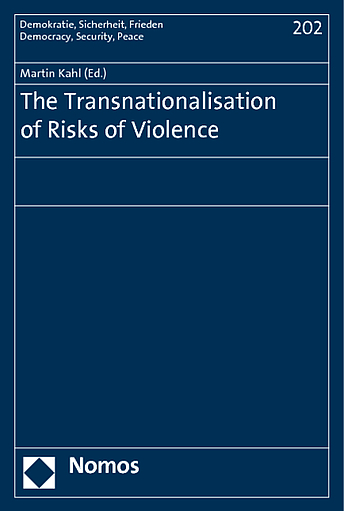englischTransnational risks of violence such as ethnic conflicts, organised crime (drug trafficking, money laundering), or terrorism are both a cause and a feature of a transition from a national to a post-national world. Much evidence suggests that, compared to interstate conflicts, transnational violence has gained in importance and will continue to do so. Transnational risks change the interplay between sub-national, national and international actors, as these actors’ roles and relative weights as both causes and managers of problems shift.
The authors of this book define the phenomenon of transnational risks of violence in the context of the “postnational constellation” and examine its involvement in current conflicts, track different forms and complex entanglements of such risks and analyse the concepts, strategies and instruments that international organisations have adopted to combat transnational risks and promote security and peace.
Transnationale Gewaltrisiken wie ethnische Konflikte, organisierte Kriminalität (Drogenhandel, Geldwäsche) oder Terrorismus sind sowohl Ursache als auch Merkmal eines Übergangs von der nationalen zur postnationalen Konstellation. Es gibt viele Anzeichen dafür, dass transnationale Gewaltrisiken im Vergleich zu zwischenstaatlichen Konflikten an Bedeutung gewonnen haben und dies auch in der Zukunft der Fall sein wird. Solche Risiken verändern das Zusammenspiel zwischen substaatlichen, nationalstaatlichen und internationalen Akteuren. Ihre Rollen und ihr relatives Gewicht sowohl als Problemverursacher als auch -bearbeiter verändern sich in diesem Zusammenhang.
Die Autoren des Buches definieren das Phänomen der transnationalen Gewaltrisiken im Kontext der „postnationalen Konstellation“ und untersuchen seine Bedeutung für die gegenwärtigen Konflikte. Sie gehen unterschiedlichen Formen und komplexen Verflechtungen solcher Risiken nach und analysieren die Konzepte, Strategien und Instrumente, die internationaler Organisationen anwenden, um sie zu bearbeiten und Sicherheit und Frieden zu fördern.


